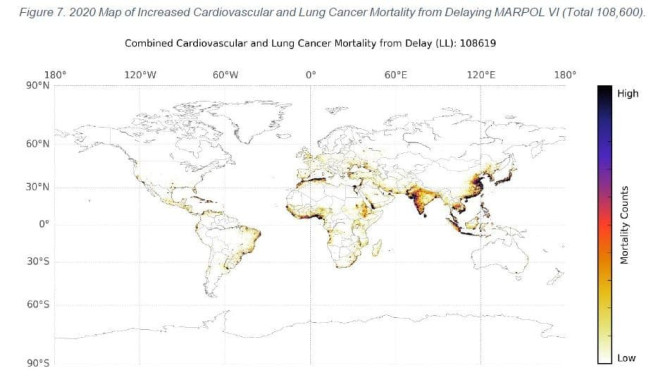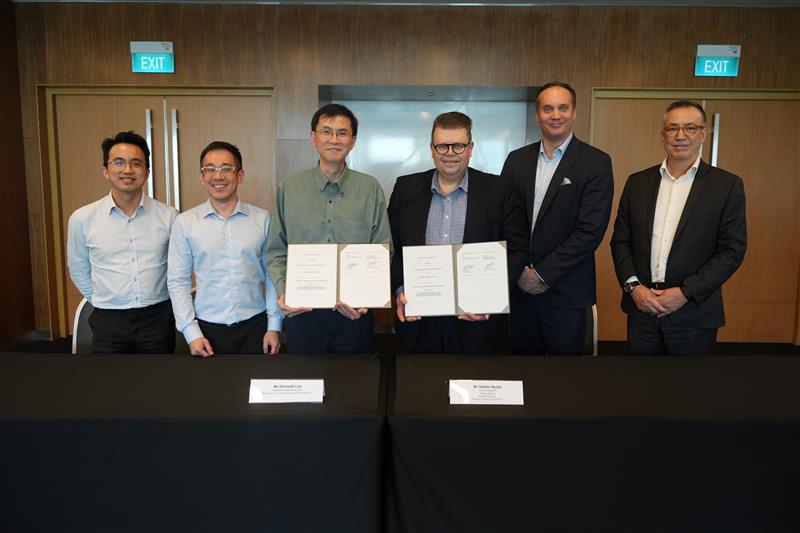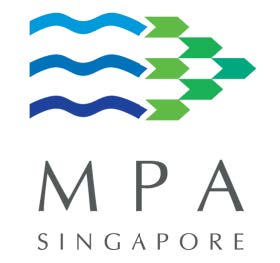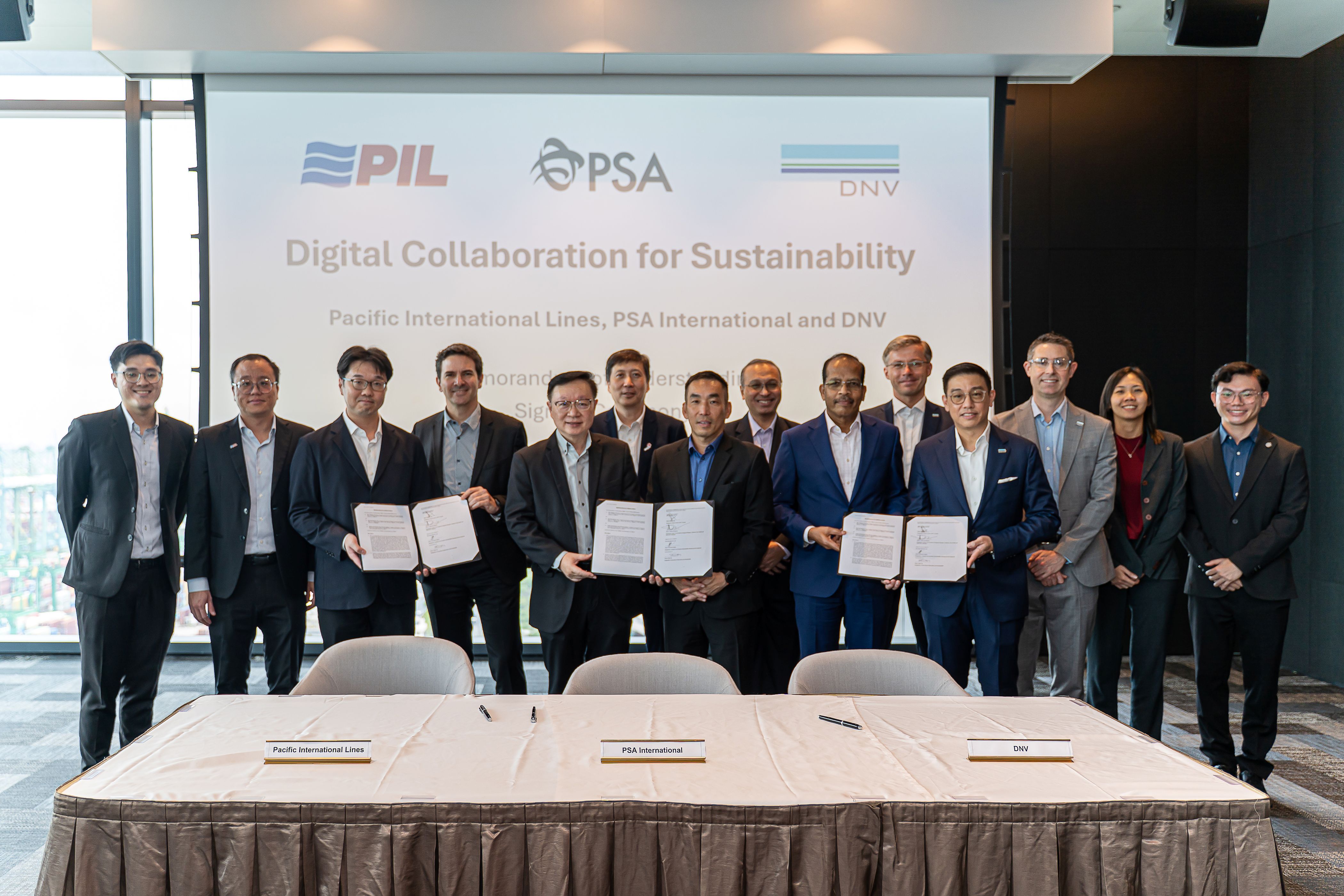
The reason for IMO 2020 is to save lives. The study elaborated by the Finish Meteorological Institute: “Health Impacts Associated with Delay of MARPOL Global Sulphur Standards,” and submitted at the 70th session of the Marine Environment Protection Committee (MEPC 70) in 2016, forecasted that 570,000 lives could be saved thanks to IMO 2020.
The key three conclusions of that study were the following: a) by implementing the cap on SOx, emissions for 2020 through 2024 were going to be reduced by about 8.5 to 8.9 million metric tonnes annually, b) the benefit would be felt mainly in coastal communities due to the reduction of ambient sulphate concentrations and, the most important of all, c) the delay in implementing the cap reduction could cause about 570,000 premature deaths worldwide.
Since saving lives (and reducing morbidity) is the almost exclusive goal of IMO 2020, I was shocked a few days ago when I listened an interview made by The Shipping Podcast of Lloyd’s List on November 1st, 2019, to Edmund Hughes, the IMO’s Head of Air Pollution and Energy Efficiency. When asked about the possibility of non-enforcement by some countries, he replied: “The requirements [of IMO 2020] apply to all ships operating in the marine environment. If some governments have a different view, if ships operate in rivers, they can take that view that is under their jurisdiction. At IMO, we regulate international shipping and all those ships trading globally and so the requirement is that it applies to all ships.” The beginning and the end of his statement seem to be well, but the core of what he said (the bold and underlined part) is wrong.
First, with my due respect Mr. Hughes, but you are not right. The same IMO says at its website: “Does the sulphur limit apply only to ships on international voyages? The sulphur oxides regulation (MARPOL Annex VI, regulation 14) applies to all ships, whether they are on international voyages, between two or more countries; or domestic voyages, solely within the waters of a Party to the MARPOL Annex.”
Second, Mr. Hughes, in your answer you are basically exempting India, Indonesia, and other countries from non-enforcement of cabotage between their islands or along their coastlines, or along their rivers. You mentioned international shipping and remarked on trading globally (cabotage is neither of both). I refer to India and Indonesia because both countries had insinuated months ago that they were not going to enforce IMO 2020 on their waters yet. One does not need to be a genius to know that even if both countries retracted their initial words, they are getting what they wanted. And the same would happen with a third country that is sending similar signals: the Philippines. And of course, we should add Russia, Vietnam, Pakistan, Brazil, Myanmar, and many other emerging and developing countries. With only one or two of those countries that claim that they will start to enforce the sulphur cap in their territorial waters until 2022 or so, many other countries will follow suit.
But why am I saying that IMO 2020 may reduce the number of deaths by far fewer than expected? Let’s go back to the study made by the Finish and have a look at the most relevant map of the entire study (the map at the top of this article, and which I copy again below). In the map, the darker the area, the most lives are saved. And we see that with the exception of Japan and China, two countries that will certainly enforce IMO 2020, the rest of those darker areas are located… in India, Indonesia, Vietnam, Philippines, Pakistan, Bangladesh, Yemen, Western Africa, North Africa, and Brazil, precisely from countries from which we can expect a non-enforcement or a weak enforcement in their territorial waters or rivers.
As the study found, regarding the geographical distribution, more than 90% of the additional deaths are expected to take place in the Asia-Pacific Region (58%), Africa (22%), and Latin America (10%). The impact would be much lower for North America and Europe and North America: only about 5%.
One also does not need to be a mathematical genius to realize that if most of the saving of lives are supposed to take place countries in which ships will keep using HSFO in their internal water or their rivers, we will NOT be saving 570,000 lives with IMO 2020 but far fewer.
Source:Pablo Rodas-Martini
The opinions expressed herein are the author's and not necessarily those of The Xinde Marine News.
Please Contact Us at:
admin@xindemarine.com


 Baltic Exchange launches new Fuel Equivalence Conve
Baltic Exchange launches new Fuel Equivalence Conve  21 Consecutive Years of QUALSHIP 21 Recognition for
21 Consecutive Years of QUALSHIP 21 Recognition for  MPA and Wärtsilä Renew Partnership to Drive Marit
MPA and Wärtsilä Renew Partnership to Drive Marit  MPA and Dalian Maritime University Renew Partnershi
MPA and Dalian Maritime University Renew Partnershi  PSA INTERNATIONAL, DNV AND PACIFIC INTERNATIONAL LI
PSA INTERNATIONAL, DNV AND PACIFIC INTERNATIONAL LI  INTERCARGO Reaffirms Call for Simplicity as IMO Cli
INTERCARGO Reaffirms Call for Simplicity as IMO Cli